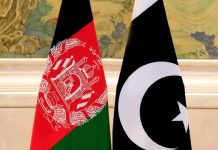SEOUL/TOKYO, Nov 18 (Reuters) – North Korea test-fired an intercontinental ballistic missile (ICBM) on Friday that Japanese officials said had sufficient range to reach the mainland of the United States and that landed just 200 kilometres (130 miles) off Japan. The launch, reported by both South Korean and Japanese officials, comes a day after a smaller missile launch by the North and its warning of “fiercer military responses” to the U. S. boosting its regional security presence.
U. S. Vice President Kamala Harris and leaders of Japan, South Korea, Canada, Australia and New Zealand condemned the launch at an emergency meeting called on the sidelines of the Asia-Pacific Economic Cooperation (APEC) summit on Friday. Japanese Prime Minister Fumio Kishida warned of further missile launches by the North and a possible nuclear test, the Japanese government said in a statement.
The South Korean military said that, in response to Friday’s launch, South Korean F-35A fighters and U. S. F-16 jets flew in formation off the east coast of the Korean Peninsula and conducted a firing drill against targets that simulated North Korea’s mobile missile launchers. Japanese Defence Minister Yasukazu Hamada told reporters on Friday that the missile was capable of flying as far as 15,000 km, while Chief Cabinet Secretary Hirokazu Matsuno said it flew to an altitude of about 6,000 km with a range of 1,000 km, before landing in the sea roughly 200 kilometres west of Oshima-Oshima Island in Hokkaido.
South Korean President Yoon Suk-yeol condemned the launch and called for stronger defence readiness and security cooperation with the United States and Japan. North Korea’s last suspected ICBM test was on Nov. 3, when it fired multiple missiles into the sea in what it said was a protest against allied military drills by South Korea and the United States. ICBMs are North Korea’s longest-range weapon and are designed to carry a nuclear warhead as far as any location in the continental United States.
In a statement carried by state media, Choe condemned a Sunday trilateral summit of the United States, South Korea and Japan during which those countries’ leaders criticised Pyongyang’s weapons tests and pledged greater security cooperation. Yoon, at a National Security Council meeting following Friday’s launch, called for additional sanctions against the North and measures to put extended deterrence in place, although he gave no specifics. North Korea’s ballistic missile tests are banned by United Nations Security Council resolutions that have sanctioned the country over its missile and nuclear weapons programmes. North Korea on March 24 launched its biggest ICBM ever, which flew 67.
5 minutes and reached an altitude of 6,248. 5 km (3,905 miles), according to state media.






